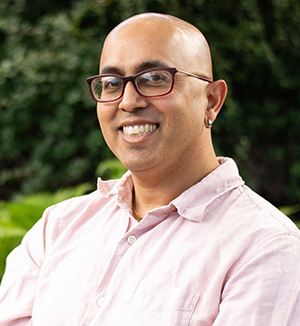 The ills of social media tend to grab the headlines, but the challenges we face on the technology and information landscape are even more pervasive. We experience them when our web searches result in bogus products or misinformation; when women and people from underrepresented groups experience exclusion and isolation due to the culture of their tech industry employers; or even when we park our kids in front of the television for a half-hour, then attempt to pry them away from it.
The ills of social media tend to grab the headlines, but the challenges we face on the technology and information landscape are even more pervasive. We experience them when our web searches result in bogus products or misinformation; when women and people from underrepresented groups experience exclusion and isolation due to the culture of their tech industry employers; or even when we park our kids in front of the television for a half-hour, then attempt to pry them away from it.
Computing — which encompasses not only computer science, but information science, human-centered design, and other disciplines — has the power to find solutions and be a force for the common good. At the Information School, where we focus on using information to improve people’s lives, computing for the common good is at the heart of our work. We do some theoretical research, but without fail, the goal is to apply our efforts to a real-world problem.
Faculty across the iSchool — too many to list — are doing diverse, high-impact work that leverages computing and information for social good. To name just a few:
- Assistant Professor Tanu Mitra led an analysis that showed how Amazon spreads misinformation about vaccines. Her work prompted members of Congress to call on the company to take a more responsible approach.
- Assistant Professor Nicholas Weber is launching public-interest technology clinics in a project funded by the Public Interest Technology University Network. In the mold of legal clinics, these clinics will help community organizations and local governments deal with challenges and advocate for their interests.
- Associate Professor Bill Howe built a model to improve how cities use data for systems that govern mobility and transportation, training it to root out discriminatory characteristics that are built into the data. Dubbed EquiTensors, it’s part of a broader emphasis on baking equity into the design of systems.
- Professor Amy J. Ko is leading the charge to bend computer science education toward social justice by developing a new teaching endorsement. In a project backed by the National Science Foundation, she and collaborators are designing a curriculum to train middle- and high-school teachers how to frame computing as a tool that’s used for both justice and injustice.
- Professor Batya Friedman and Associate Professor David Hendry are the leading experts in Value Sensitive Design, an approach to the design of technical systems that accounts for human values. Institutions across the U.S. have adopted their approach, in various fields including architecture, computational linguistics, computer security and transportation.
Often, it’s a team effort. With our partners across campus, we have launched research centers focused on mis- and disinformation; accessible technology; and, most recently, ethics in artificial intelligence. Responsibility in AI Systems & Experiences (RAISE for short) will identify problems in the use of AI, then build and demonstrate reusable technologies to address them. Howe and Associate Professor Chirag Shah are leading the effort with Mitra and researchers from across the University of Washington. These and numerous other research units at the UW confront tough issues such as threats to our democracy, the warming of our planet and crises in public health. Expertise in information science and computing is a crucial piece in addressing these existential threats, and the iSchool is a more-than-willing partner.
We are not alone in recognizing the value of computing for the common good. Some of the UW’s peer institutions are making big investments in new computing-focused academic units, buildings and professorships. Soon, I hope to see the UW rally behind a comprehensive campaign to support a shared space on campus for scholarship in this area, along with additional faculty to add to our research and teaching capacity. Once it takes flight, the initiative will spark collaboration among the iSchool, the Human-Centered Design & Engineering department, the Allen School of Computer Science & Engineering, and other computing-focused units across campus and allow us to do what we do best: work together on the most innovative solutions to the most challenging problems.
With the nexus of leading technology companies in the Puget Sound area, the skilled local workforce, and the talent of our research community at the UW, this is the place that should lead the field. The iSchool will play a central role, and there’s no time to waste. The need for computing for the common good has never been greater.
Anind K. Dey
Dean and Professor
Winter 2022